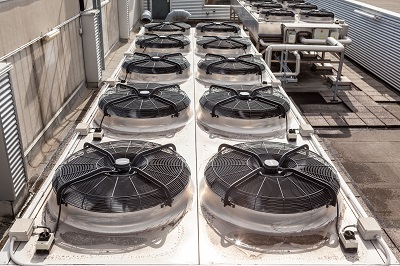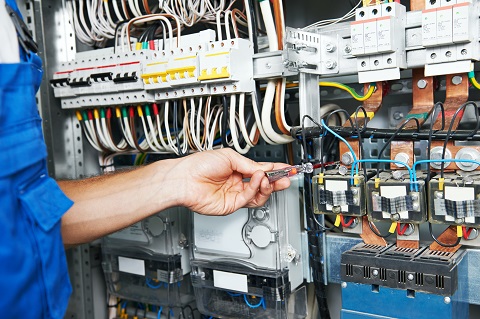Building Automation Systems are prone to aging and will eventually need to be replaced, fixed, or upgraded over time. Like an HVAC or plumbing system, building control equipment has a finite lifespan that varies based on quality, use, and care.
There are three simple tips for avoiding BMS problems:
- Perform Regular Maintenance
- Get a Legacy Upgrade
- Avoid Proprietary BAS Systems
How to Avoid BMS Problems
A professionally-maintained system that receives regular service has the potential to last a long time, paying for itself many times over before needing a full legacy BAS upgrade or replacement.
The ultimate goal of any BAS is to conserve energy and save money, but failing to service the equipment properly can have devastating results.
Regular Maintenance Keeps Building Control Systems Running Smoothly
 Installing a new Building Automation System is a significant investment for building owners.
Installing a new Building Automation System is a significant investment for building owners.
To see a good ROI over time, the system must receive regular attention and care.
The level of service needed depends mainly on the size and complexity of the system.
One of the biggest disadvantages of building automation systems is that many systems go without regular service. This eventually leads to larger problems and increased costs. Most issues develop over time, and a qualified service technician can help prevent them through regular maintenance.
One of the best ways to avoid problems with a Building Automation System is to sign up for a scheduled BAS maintenance and service plan.
Some Problems Can Be Solved by Upgrading an Existing Building Automation System
It’s important to try to extend the life of those systems as long as possible due to the initial cost of a BMS. A legacy upgrade can sometimes be a viable solution to extend the life of the original system. It will allow your existing BMS to integrate seamlessly with current technology.
Building expansions can be a major problem for a Building Automation System because systems are built to the unique specifications of a building’s size and needs. Expanding the building means the capacity of the BMS needs to increase to accommodate the additional building systems and space.
Legacy upgrades are a great way to increase the capacity of a BMS and solve one of the biggest limitations. You can often perform them in a piecemeal fashion by replacing certain parts when they fail. This will allow you to spread the overall cost out over an extended period of time.
Problems Encountered When Upgrading a BAS
When upgrading a legacy Building Automation System, it is common to find problems with your existing equipment that would otherwise be unknown, even in well-maintained facilities. Upgrading your BAS allows you to eliminate these problems, future-proof your building with newer technology, extend the lifespan of your equipment, and save money.
Mid-Atlantic Controls specializes in upgrading Building Automation Systems. To learn more about BAS Upgrades, visit our website: https://www.midatlanticcontrols.com/building-automation-services/legacy-upgrades/
Common Problems with Proprietary BMS Systems
 Problems often arise for those using proprietary Building Automation Systems. Proprietary (as opposed to non-proprietary) BAS systems prevent customers from being able to receive service from anyone other than the manufacturer’s own technicians. Customers cannot incorporate technology or equipment from other manufacturers, even if there is a better option on the market.
Problems often arise for those using proprietary Building Automation Systems. Proprietary (as opposed to non-proprietary) BAS systems prevent customers from being able to receive service from anyone other than the manufacturer’s own technicians. Customers cannot incorporate technology or equipment from other manufacturers, even if there is a better option on the market.
One of the biggest problems with proprietary systems is that manufacturers only offer limited solutions. There may be another option on the market that is a much better fit for your building. You lose the freedom of choice almost entirely with proprietary systems.
Other disadvantages of building management systems include:
- Poor to no security—When manufacturers stop supporting a BMS system, they also stop sending out critical security updates. This makes your legacy system a prime target for hackers and other bad actors.
- Limited power—Buildings often go through multiple upgrades throughout their lifespan. A legacy BMS system will have a challenging time keeping up with the demands of a modern or upgraded building.
- Poor tenant comfort—Older systems often lack the granular control that allows the facility manager or building owner to improve tenant comfort.
- Limited analytics—Legacy systems are underpowered and don’t have the necessary resources or memory needed to run powerful reports or analytics that can uncover hidden insights.
Most BMS Systems Will Eventually Pay For Themselves in Energy Savings
We recommend you avoid getting locked into proprietary BMS technology. By doing so, you’ll retain the freedom to choose the installer, service technician, and equipment manufacturer best suited for your unique needs and budget.
Building Automation and Energy Management Systems DO have the potential to pay for themselves many times over their lifespan. Take our Performance Challenge to help determine if the BAS in your building is proprietary or non-proprietary.
Contact us to learn more about BMS technology and service plans, or if you're considering upgrading an existing system, like an old Johnson Controls BAS system or Trane System.














